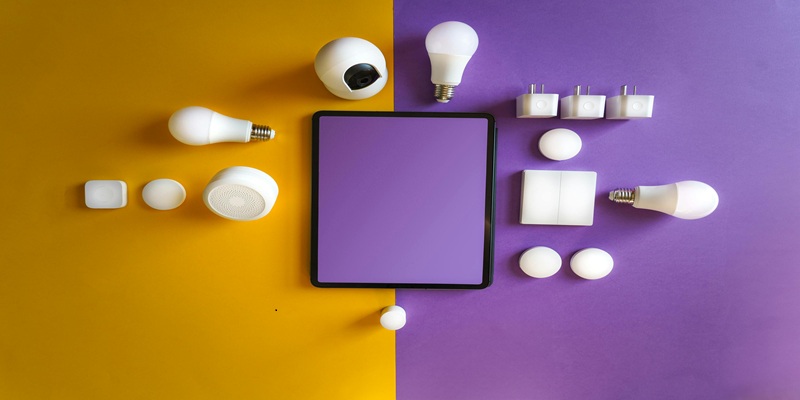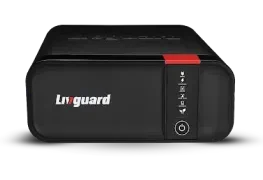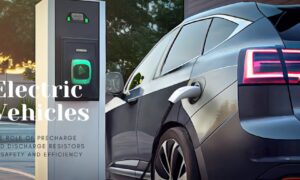Energy consumption continues to rise. With more devices operating daily, managing power usage efficiently has become a necessity. Traditional energy-saving methods often involve manually turning off devices, which can be inconvenient. Fortunately, smart plugs offer a practical solution by automating energy management. These intelligent devices help homeowners and businesses reduce power wastage, lower electricity bills, and enhance overall convenience.
Understanding Smart Plugs and How They Work
Smart plugs are compact devices that plug into a standard electrical outlet, allowing users to control appliances remotely. Once connected, they enable users to turn devices on or off via smartphone apps or voice commands. Many smart plugs integrate with popular platforms like Google Assistant, Amazon Alexa, and Apple HomeKit, making them highly versatile.
Key Features of Smart Plugs
- Remote Control – Operate devices from anywhere using a mobile app.
- Scheduling and Automation – Set timers for devices to turn on or off automatically.
- Energy Monitoring – Track power consumption in real time.
- Voice Assistant Compatibility – Control devices hands-free with smart assistants.
- Overload Protection – Prevent electrical hazards by monitoring power surges.
How Smart Plugs Help in Energy Management
Reducing Energy Waste with Automated Scheduling
Many electronic devices consume power even when not in use. Smart plugs solve this problem by enabling automated scheduling. Users can program appliances to turn off during idle hours, preventing unnecessary energy consumption. For example, scheduling a coffee maker to turn off after morning use saves power without requiring manual intervention.
Real-Time Energy Monitoring for Informed Decisions
One of the standout features of smart plugs is real-time energy monitoring. By tracking power usage, homeowners and businesses can identify high-consumption appliances. This data helps users make informed decisions about their energy habits. For instance, if a space heater is consuming excessive power, users can opt for a more energy-efficient alternative.
Enhancing Convenience with Remote Control
Forget to turn off an iron before leaving the house? With smart plugs, users can remotely power down appliances via a smartphone app. This feature is especially useful for travelers who want to ensure energy efficiency while away from home. Remote control functionality also benefits veterans individuals who may find it challenging to access power outlets.
Smart Integration with Home Automation Systems
Smart plugs seamlessly integrate with home automation systems, optimizing energy use further. When connected to sensors, they can turn off appliances in empty rooms automatically. For example, linking a smart plug with a motion sensor ensures lights turn off when no movement is detected. Such automation prevents unnecessary electricity usage and promotes sustainability.
Cutting Down Standby Power Consumption
Many appliances, such as televisions and gaming consoles, continue to draw power even when switched off. This phenomenon, known as phantom energy consumption, can significantly impact electricity bills. Smart plugs eliminate this issue by completely cutting power when devices are not in use. By simply plugging electronics into a smart plug, users can ensure zero standby power drain.
Preventing Overloading and Enhancing Safety
Overloaded circuits can lead to electrical fires and damage appliances. Smart plugs come with overload protection features that monitor energy consumption and shut off devices when usage exceeds safe limits. This not only saves energy but also enhances household safety.
Smart Plug Applications for Different Settings
Home Energy Management
Homeowners can benefit significantly from smart plugs by automating household devices. Common uses include:
- Turning off chargers, lamps, and fans when not needed.
- Managing air conditioners efficiently to reduce excessive power usage.
- Controlling outdoor lighting based on daylight hours.
Office and Business Energy Efficiency
Businesses often struggle with high electricity bills due to idle equipment running after hours. Smart plugs help in:
- Powering down computers, printers, and vending machines when not in use.
- Reducing unnecessary lighting in unoccupied office spaces.
- Managing energy-intensive appliances such as coffee machines and heating units.
Industrial and Commercial Uses
Industries that rely on heavy machinery can optimize energy use with smart plugs by:
- Monitoring and regulating power usage of high-energy equipment.
- Automating shifts for lights and machinery during operational hours.
- Preventing wastage by shutting off unused machines automatically.
Choosing the Right Smart Plug for Your Needs
When selecting a smart plug, several factors should be considered:
- Compatibility – Ensure the smart plug integrates with your existing smart home system.
- Power Rating – Choose a plug that can handle the wattage of your appliances.
- Wi-Fi Connectivity – A strong and stable connection ensures seamless remote operation.
- App Features – Look for user-friendly apps with detailed energy monitoring.
- Security Features – Ensure the plug has built-in safety mechanisms like overload protection.
Overcoming Common Smart Plug Concerns
Privacy and Security Risks
Since smart plugs connect to Wi-Fi networks, they can be vulnerable to cyber threats. To mitigate risks:
- Use strong passwords for your smart home devices.
- Regularly update firmware to patch security vulnerabilities.
- Opt for reputable brands with strong encryption measures.
Connectivity Issues
- Weak Wi-Fi signals can disrupt smart plug functionality. To avoid this:
- Position the router centrally for better signal distribution.
- Use a Wi-Fi extender if the plug is far from the router.
- Choose a smart plug that supports dual-band Wi-Fi for stability.
Device Compatibility
Not all appliances work optimally with smart plugs. To ensure compatibility:
- Check power requirements before connecting large appliances.
- Verify integration with your preferred voice assistant.
- Test automation settings to confirm proper functionality.
The Prospect of Smart Energy Management
As technology advances, smart plugs will become even more sophisticated. Future developments may include:
- AI-Powered Energy Optimization – Predictive algorithms will suggest the best energy-saving strategies.
- Integration with Renewable Energy Sources – Smart plugs will work alongside solar panels and wind turbines for greener solutions.
- Enhanced Interconnectivity – Improved compatibility with more smart home devices for seamless automation.
Conclusion
Smart plugs provide an easy and affordable way to optimize energy consumption. By automating power management, monitoring energy use, and integrating with home automation, they contribute to sustainable living. Whether for homes, offices, or industrial settings, these devices play a crucial role in reducing electricity waste. With continued advancements in technology, smart plugs will further enhance convenience and efficiency, making energy management smarter and more intuitive.



































